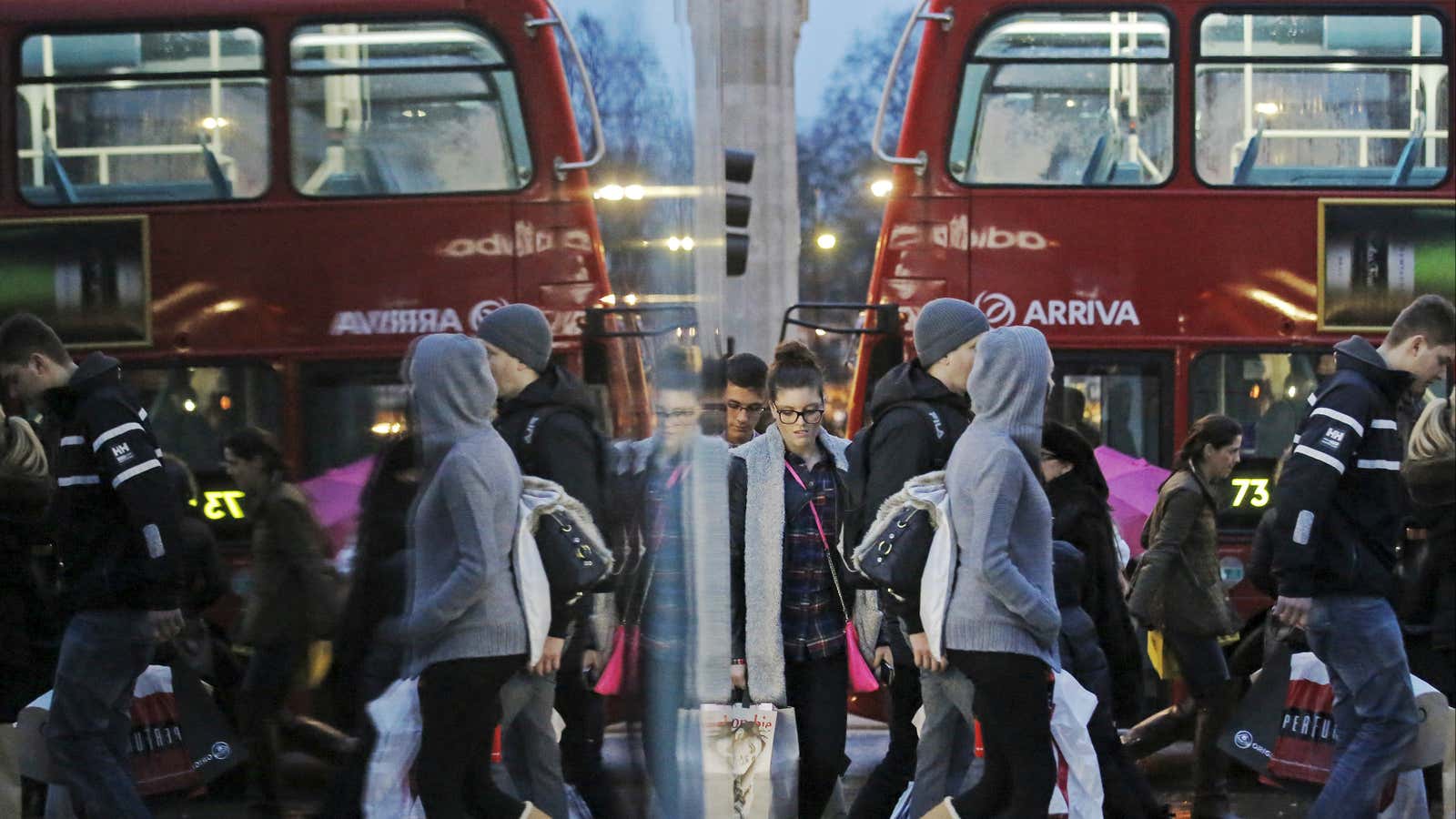In November of 2006, I went to visit my university friend Maarten in cold and rainy Leicester. At the time, there were two things we could never have predicted: First, that this town would ever be the home of a Premier League champion, and second, that we would be part of the last generation to participate in the EU Erasmus exchange program there. Yet, ten years later, the former has happened and the latter looks astonishingly likely.
But just as Leicester City Football Club achieved the improbable, Brits can now do the improbable and—for all intents and purposes—remain in the EU, despite the deplorable Brexit vote. It’s already clear large groups of the population wish to do so, and there’s historical precedent set by other European nations to guide the way.
First, consider the will of the people. Scots and Northern Irish voted massively in favor of the EU, as did young Brits and Londoners. They should all be able to remain in. Scottish and Northern Irish should remain masters of their own fate. Young Brits should remain welcome in Europe and continue to call it their home. And Londoners from England and elsewhere should maintain access to Europe, just as many West Berliners had access to democratic Germany when their city was cut off during the Cold War. As fellow Europeans, we should welcome those Brits as much as we can.
There are precedents aplenty to help us through these times. My own country, Belgium, is a case in point. In 1950, we had a similarly bruising referendum. Our government asked us, yes or no, whether King Leopold III could regain his crown, or if he had to stay put in exile because of his lack of resistance to German occupiers during World War II. The country voted for a return.
But the regional differences were stark, and the divide deep, just like in Britain today. Brussels and Wallonia wanted the king to leave, Flanders wanted him to remain. Young people thought about it differently than older people, and cities voted differently than the countryside. The country went into a constitutional crisis, and no one knew what to do. If the king did return, there would be upheaval. If he didn’t, there would be as well.
In the end, the result was a compromise—something along the lines of “The King Is Dead, Long Live The King.” Leopold, despite having majority support, agreed to abdicate his throne. His son, 20-year-old prince Baudouin, was designated the new king. Those who voted for the return of the king had gotten a king. Those who voted for the departure of Leopold had gotten the departure of Leopold. Calm gradually returned to the country.
The outcome of the Brexit vote could ultimately be something along the same lines. The will of the voters needs to be respected, and that will varies starkly by region and age. The outcome can’t be a clear-cut in or out. Those that voted out—a majority in England and Wales—should exit the EU. But those that voted in—a majority in Scotland, Northern Ireland, London, and young voters—should be allowed to stay in.
It’s improbable, but not impossible. The result could be a confederated UK along the Belgian model, which famously divides powers between its regions, communities, and federal government. In this case, regions like Scotland and Northern Ireland could remain or leave the UK, but certainly stay in Europe. London could receive special status in the UK, just as Brussels or Washington, DC have in Belgium and the US. As for young people in England and Wales, they could retain their rights to programs such as Erasmus, benefiting from the free movement of people that would become part of negotiated free trade agreements between the island and Europe.
Your darkest day can directly precede your brightest hour—ask the Lierse football club. In Sept. 1971, that team (my favorite) played and lost a European home game against English giant Leeds United, 0-2. All hope was squashed. It was the end of Lierse in Europe. The press didn’t even bother to join Lierse on its return trip to Northern England. But two weeks later, a miracle happened. The youngsters of Lierse beat Leeds 0-4, and remained in Europe.
London may not be Lierse, and the young people of England, Scotland, and Northern Ireland are certainly not professional footballers. But with the right mindset, they too can overcome the preferences of their (Northern) English peers. It won’t be easy, but it can be done. Just ask Leicester.
